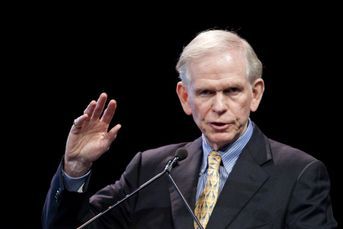The case for automatic IRAs
Opposing state efforts to roll out auto retirement plans is disappointing at the least.
Saving for retirement is a responsibility too many Americans are shirking.
Some are unwilling to forgo vacation homes, luxury automobiles and other trappings of unfettered consumerism. Others are beset with inertia or lack of access to employer-based retirement plans such as 401(k)s and 403(b)s.
The statistics are frightening: Nearly one-third of adults in the U.S. have no savings or pension to help fund their retirement, according to the Federal Reserve Board.
In 2011, 48% of employees in the private sector, or 44.5 million people, worked for companies that did not sponsor any form of retirement plan, up from 38.1% in 1998.
Access to retirement savings plans is even more elusive at small companies. Eighty-six percent of smaller employers — those with fewer than 100 workers — do not offer a plan that would let employees put away money for retirement, according to the Government Accountability Office.
MIND-BOGGLING
That’s why it is disappointing — if not downright mind-boggling — that the Financial Services Institute Inc., which represents independent broker-dealers and financial advisers, is doing everything it can to stop states from rolling out automatic retirement plans.
Right now, nearly a dozen states are considering bills to require companies that don’t offer retirement plans to automatically enroll employees in state-run plans.
Last month, the Illinois Legislature passed a bill that would require companies with 25 or more employees and with no retirement plan to set up automatic-enrollment individual retirement accounts administered by the state.
Under the plan, workers would have a 3% payroll deduction per paycheck deposited into a state-run retirement plan. Of course, workers could opt out.
In 2012, California Gov. Jerry Brown signed a bill that eventually will require businesses with five or more employees that do not offer a retirement plan to enroll them in a savings plan based on IRAs. The California Secure Choice Retirement Savings Investment Board has been established to conduct a market analysis and feasibility study, which is mandated before the plan can be implemented.
Other states considering auto-IRAs include Connecticut, Maryland, Oregon and Vermont.
The FSI opposes such plans on the grounds that they could compete with financial advisers.
“We see this as unnecessary, unwise competition against small [financial advisers] that are working hard to address these needs,” David Bellaire, executive vice president and general counsel at the FSI, told InvestmentNews after the Illinois plan was passed. “There’s significant research that shows that investors, particularly those planning for retirement, have better outcomes when they work with financial advisers.”
While we don’t doubt that investors working with financial advisers have better retirement outcomes than those who don’t, we also know that many financial advisers cannot afford to work with the investors these automatic IRA programs are designed to help — those with lower-paying jobs and scant savings.
If anything, the state-run savings programs might bolster the pipeline of potential clients by helping investors accumulate the assets needed to meet advisers’ account minimums.
Once investors have gotten into the habit of saving for retirement, they likely will be more receptive to the services of a financial adviser.
The FSI also argues that state-run retirement plans would undermine the incentive for smaller businesses to set up their own, employer-sponsored plans.
Instead, the institute says, those businesses would simply “offload” the responsibility to the states.
But state-run retirement plans could be designed to be less attractive than employer-sponsored ones. For example, the automatic IRA tax credit could be smaller than the one employers receive for setting up their own plans.
Employers relying on state-run plans also could be prohibited from contributing to auto-IRAs, thereby forcing those that want to attract workers with robust retirement plan options to favor employer-sponsored plans.
It’s long past time to address the looming retirement crisis. With more than 10,000 baby boomers retiring daily, we need to expand access to workplace savings plans and put more Americans on the road to a secure retirement.
Learn more about reprints and licensing for this article.








